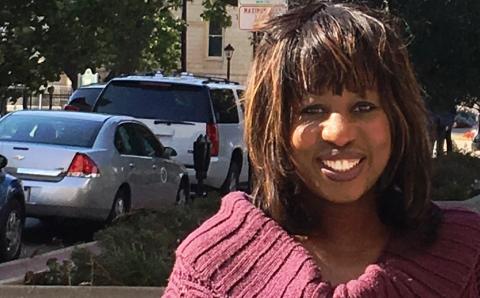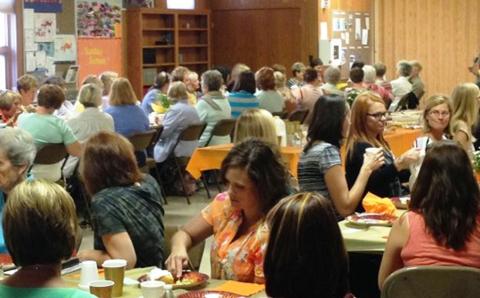I recently ran in a 5-kilometer race. I did pretty well, all things considered, completing the course about a minute quicker than my goal, which was, admittedly, rather modest. I was beaten soundly by several 9-year-olds and even a couple of 8-year-olds. At least I'm still ahead of the 7-year-olds! I used to run much faster, but when I reached my 60s I slowed considerably. My ankles, hips, and knees all protest when I run, so I can't train very often. Age changes things.
Of course, running speed is only a fraction of what I've lost. My children left 15 years ago to make their way in the world; I still see them from time to time, but it's not the same as having them at home. My energy started flagging in my 50s and I couldn't work as hard as I had before. At age 64 I retired from my full-time job and left the city where I had lived for 30 years to help my elderly parents. This was a voluntary action but still it produced a cascade of losses—colleagues, income, status, the opportunity to mentor young people—to which I'm still trying to adjust.
My losses are minor compared with those of others. Quite a few people my age have lost houses to foreclosure, health to illness, or spouses to death. I can still run; some of my age-mates can’t walk anymore. The catalogue of losses will only grow in the years to come. Sportswriter Roger Angell wryly noted, “In my tenth decade, I can testify that the downside of great age is the room it provides for rotten news. Living long means enough already.”
Loss pervades the final third of life. To deal with loss we must grieve—to mourn what won’t return, no matter how much we want it to. Mourning takes a toll on us, but so does not mourning. Some pretend that nothing has changed; in doing so they are denying reality. Others recognize loss but refuse to grieve; they are at risk for developing a constant pucker from frequently tasting the bile of past downturns and disappointments.
If our well-being depends on grieving our losses, how do we grieve? Certainly by admitting what is gone and how we feel about its absence—facing our emptiness, yearning, anger, fear, despair, and myriad other feelings. Reactions range from my mild disappointment that I now run slowly to cries of the heart like that of David when he lost the support of friends and the respect of neighbors: “My life is consumed by anguish and my years by groaning; my strength fails because of my affliction, and my bones grow weak” (Ps. 31:10).
I’ve usually thought of grieving as a rearguard action, a strategy that limits long-term damage but does no more than cover a retreat. Catholic priest Ronald Rolheiser suggests otherwise—that mourning our losses offers us gains. He believes that good grieving “consists not just in letting the old go but also in letting it bless us.” How, though, can blessing come from grief?
Perhaps we best prepare for grief’s blessing by looking first to the past, then to the future. The job or ability or mate that we lost was a godsend during its time with us. Looking back, we remember the joy that good thing or person brought to life, in gratitude thanking God for it. Looking to the future, we recognize that its loss is not the end of God's gracious provision for us. To be without this cherished thing is not to be forsaken, for God has other blessings in store for us. Jesus may have had in mind the future blessings that would come from loss when at the tomb he said to Mary, “Do not hold on to me” (John 20:17). Mary had to let go of Christ's physical presence in order to receive the riches that flowed from his ascension and the Spirit’s coming.
Blessings can come not just when something is lost but when we relinquish something that might interfere with our flourishing. Theologian Lewis Joseph Sherrill claimed that in order to grow during late life we must engage in simplification. That is, we must distinguish what things are less important and relegate them to the sidelines to make space for what is most important in life. It is better to let go of inessentials than it is to clutch everything and have what is most precious slip from our grasp.
Sherrill describes several areas where simplification is needed.
Simplification of Status: Retiring from our jobs often entails giving up recognition or prestige. We may also lose status when we relinquish leadership roles in family, church, and community. These changes may be difficult; it is a blow to the ego to be seen as dispensable! The potential gain is that both we and others can more clearly recognize our core identity as distinct from the roles we played.
Physical Simplification: As we age, strength and stamina decline, and we may experience illness or disability. We can either accept waning vitality—following doctor’s orders, cutting back our schedules, lining up with the joggers rather than the runners—or deny that we've changed physically. If we whip our bodies to perform as before, they will eventually break down, and the pleasures they provide will give way to suffering. In accepting physical limitations, we more clearly recognize that we are not just matter, but also spirit.
Material Simplification: Many of us find it difficult to rid ourselves of possessions we've accumulated but no longer need. I recently spoke to a woman in her late 60s who asked why she was unable to discard size-6 clothes that she last fit into 30 years ago. She then answered her own question by saying she still reminisces about how good it felt to wear them. For her, as for many of us, material simplification means to give up objects associated with our former selves so we can better become our aging selves.
Simplification of Character: With maturity, less central ways of acting and thinking often atrophy and core personality characteristics become more prominent. Sherrill thought that the best character trait that can emerge at this point is a focus on “mature, outgoing love.” Such love is reminiscent of the apostle John, who, toward the end of his life, reiterated again and again variations on the simple message, “Dear friends, let us love one another” (1 John 4:7).
Spiritual Simplification: With increasing age, we may find less use for abstract or speculative theology and may discover that some spiritual practices no longer nourish our relationship with God. Late in life, blessing comes from putting aside inessentials and focusing on those beliefs and practices that keep faith alive and vibrant.
Old age is certainly a time of loss, prompting many to react with bitterness or denial. Yet old age can also be a time of gain, of blessings. Such blessings result from gratitude for God's past provision and joyful anticipation of the riches God will yet provide. When we willingly simplify, even those of us who, like Martha, have been distracted by many things may finally come to recognize what is most important.
About the Author
Robert J. Ritzema, a clinical psychologist, practices part-time as a therapist at Psychology Associates of Grand Rapids, Mich. He worships at Square Inch Church, a Christian Reformed church plant in Grand Rapids.









